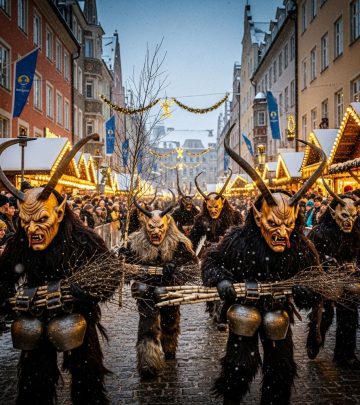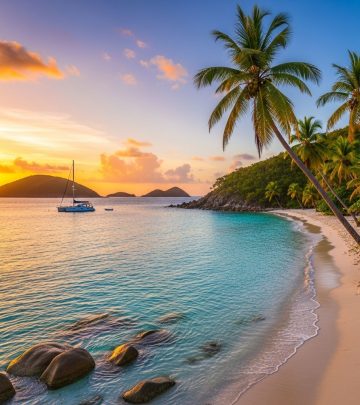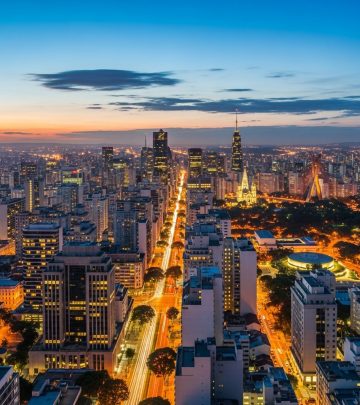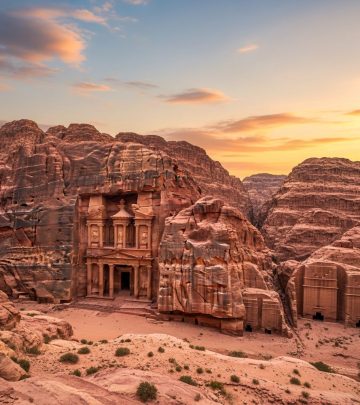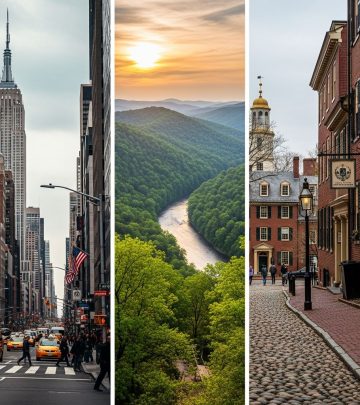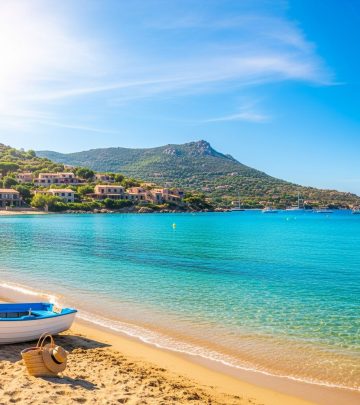Essential Things to Know Before Traveling to Jamaica
Discover key tips, local customs, and travel essentials for a rewarding trip to Jamaica—from beaches and nightlife to etiquette and practical advice.
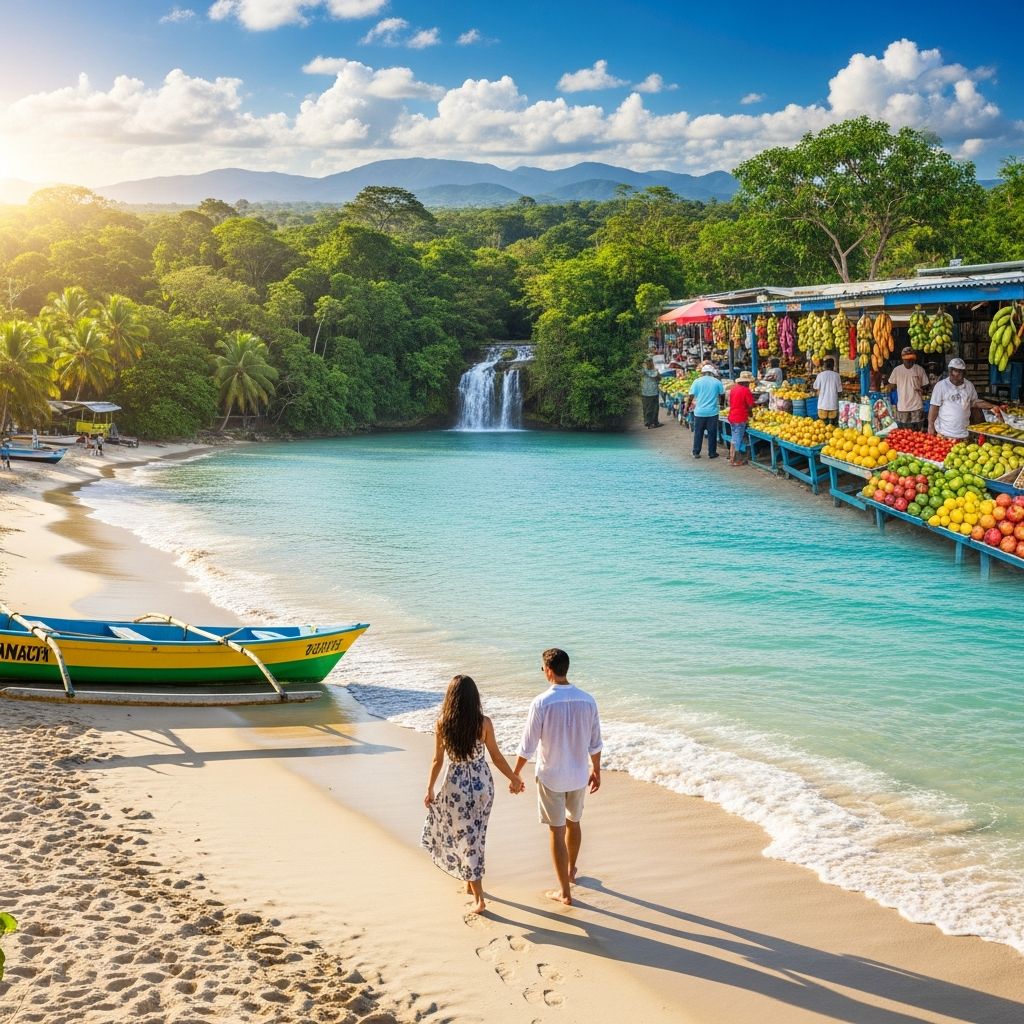
Jamaica’s pulsating reggae rhythms, breathtaking landscapes, and magnetic energy make it a favorite among travelers eager to experience the Caribbean at its finest. From dazzling coastlines and jungle-covered mountains to vibrant cities and rich traditions, the island offers much more than sand and sun. Before you embark on your adventure, get familiar with Jamaica’s unique spirit, local know-how, and practical travel tips to maximize your journey.
Choose Where to Stay Wisely
With Jamaica’s immense diversity, selecting the right destination shapes your experience dramatically. Geography, local culture, nightlife, and nearby activities all play a role in finding your ideal base:
- Negril & North Coast: Renowned for powdery beaches and water sports, Negril and the north coast are prime for sun-seekers and active travelers.
- Montego Bay & Ocho Rios: These hotspots offer excellent dining, exciting nightlife, and easy access to natural wonders. Ocho Rios is famed for its waterfalls and adventure tours, while Montego Bay boasts a lively music and club scene.
- Kingston: The capital is the epicenter of Jamaica’s music and nightlife, home to legendary dancehall clubs and reggae venues. Expect world-class concerts and authentic local flavor.
- Treasure Beach & Port Antonio: For tranquility and the true essence of laid-back Jamaican culture, head to Treasure Beach on the south coast or Port Antonio on the northeast. These regions offer uncrowded sands and immersive local experiences.
- Mountain & Rural Adventures: Nature lovers seeking hiking or unique cultural immersion should consider the Blue Mountains (especially for hiking up to Blue Mountain Peak) and Cockpit Country, accessible from Kingston or Falmouth.
- Maroon Culture: Charles Town offers insights into Maroon history, music, and traditional customs for those interested in Jamaica’s rich past.
Accommodation Types
- Resorts: Some all-inclusive and boutique resorts cater to luxury travelers.
- Local Guesthouses: Expect friendly hosts and authentic island ambiance.
- Villas & Rentals: Ideal for groups and families craving privacy.
Bring a Mosquito Net (Just In Case)
Jamaica’s tropical climate means insects—especially mosquitoes—can be pesky. While higher-end hotels and resorts typically provide adequate mosquito control and screens, pack a lightweight net for extra security if you intend to stay in rural areas or budget accommodations. It also helps when hiking, camping, or visiting mountainous regions.
Carry Some Cash
Although many hotels, restaurants, and shops increasingly accept credit cards, cash remains king across Jamaica:
- Small businesses, market vendors, and route taxis often only deal in Jamaican dollars.
- ATMs are available in towns, but may be sparse in more rural or remote areas.
- Notify your bank prior to travel, and avoid carrying large sums of money when venturing out.
Bring a mix of small bills for everyday transactions—tipping, shopping, and public transport.
You Can Travel During Hurricane Season
Jamaica’s official hurricane season stretches from June through November. While storms are infrequent, monitor weather forecasts prior to travel and consider flexible bookings, especially in late summer and autumn. Most travel infrastructure is robust, but check for local advisories and safety updates during your visit.
You Don’t Need to Hire a Car
Getting around Jamaica is feasible using local transportation. Options include:
- Comfortable, air-conditioned buses serve key towns and cities.
- Crowded minibuses and route taxis are the backbone of local travel.
- For exploring more remote destinations, expect longer trips and less predictability in transit times.
- Car hire is available at major airports, such as Kingston and Montego Bay, for those seeking flexibility or planning road trips.
For itineraries focused on city stays and popular attractions, public transport and taxis suffice. Adventurous travelers heading off-the-beaten-path may still prefer renting a vehicle for convenience.
Feel Free to Let Loose on a Night Out
Nightlife is at the heart of Jamaican culture, especially in Kingston, Montego Bay, and Negril. Here’s what to expect:
- Dress Code: Casual summer wear is popular, but upscale clubs and restaurants may require smart casual attire.
- Dancehall Clubs: Women often wear “batty riders” (skin-tight shorts) and fitted tops; men stick to jeans and shirts. The scene is vibrant, expressive, and decidedly nonjudgmental—be ready to dance and have fun.
- Dancing: Suggestive moves and friendly competitions are the norm. Locals might encourage you to join in—don’t worry if your skills aren’t perfect, it’s all in good spirit.
- Party Vibe: Come as you are; authenticity is valued over appearance.
Nightlife is welcoming yet lively—embrace the festive environment, but respect local etiquette around judgment and privacy. Try your best to dance; you’ll probably receive playful tips from regulars.
Stay Up for the Nightlife
Jamaica pulses after dark, with festivities, live music, and street parties continuing well past midnight—especially in Kingston, Negril, Montego Bay, and Ocho Rios:
- Negril: Best for laid-back beach parties and bonfires that stretch till dawn.
- Kingston: Home to high-energy nightclubs, music festivals, and street dances.
- Concerts: Reggae and dancehall events usually feature multiple performers. The energetic crowd shows appreciation with “bullet bullet” shouts and lively gestures.
- Late Nights: Nightlife rarely heats up until midnight or later, so pace yourself for a long, exhilarating evening.
Do Talk to Strangers
Jamaica’s culture is social and outgoing—interacting with locals is warmly encouraged and considered proper etiquette:
- Polite greetings like “good morning,” “good afternoon,” or “good night” are customary.
- Conversations with strangers are common and generally friendly.
- Elders command particular respect; greet them courteously.
- Bantering with market vendors and small business owners, even if you’re not buying, is preferable to ignoring them—as social engagement is valued.
While some locals may approach you for business, most are genuinely interested in cultural exchange. Don’t be standoffish; openness is appreciated.
Other Practical Tips: Health, Safety, and Essentials
- Health Precautions: Drink bottled or purified water in rural areas; bring sunscreen, insect repellent, and any personal medications. Medical facilities are decent in cities, but limited inland.
- Safety: Use common sense with valuables. Petty theft and scams can happen, but violent crime rarely affects tourists. Stay informed about local security notices.
- Local Customs: Avoid filming or photographing locals without permission. Respect Rastafarian sites and sacred places; ask before entering.
- Language: English is official, but Jamaican Patois is widely spoken. Don’t worry if you don’t understand every word; locals will help you out.
Table: Jamaica Travel Quick Facts
| Item | Tip |
|---|---|
| Currency | Jamaican Dollar (JMD); US dollars widely accepted at resorts |
| Climate | Tropical; dry season Dec-April, wet/hurricane season June-November |
| Transportation | Buses, route taxis, car hire available |
| Language | English; Jamaican Patois |
| Best time to visit | December to April for dry weather |
Top Attractions in Jamaica
- Blue Mountains: Ideal for hiking, birdwatching, and panoramic views.
- Dunn’s River Falls: Famous for cascading waterfalls in Ocho Rios.
- Seven Mile Beach (Negril): Renowned white-sand stretch with turquoise waters.
- Rick’s Cafe (Negril): Cliff jumping, live music, and sunset cocktails.
- Port Antonio: Visit Reach Falls, Blue Lagoon, and pristine rainforest surroundings.
- Montego Bay: Rose Hall Great House, hip strip, and vibrant bars.
Frequently Asked Questions (FAQs)
Q: Is Jamaica safe for tourists?
A: Jamaica is generally safe for travelers, particularly in tourist areas. Basic precautions—sticking to well-traveled areas, avoiding displaying valuables, and using trustworthy transport—are recommended.
Q: What is the best time of year to visit Jamaica?
A: December to April is the driest and most popular season. June to November sees occasional rain and is technically hurricane season, but storms are rare.
Q: Do I need a visa to visit Jamaica?
A: Many nationalities do not require a visa for short stays; check entry requirements before travel.
Q: What currency should I bring?
A: The Jamaican dollar is the official currency, but US dollars are accepted at most resorts, hotels, and some shops.
Q: Are there health concerns travelers should be aware of?
A: Mosquito-borne illnesses are present in some areas; use repellent and consider carrying a net. Drink bottled water in less developed areas.
Bonus: A First-Time Guide to Negril
Negril ranks among Jamaica’s most inviting towns for travelers, offering a blend of local flavor and spectacular scenery:
- Seven Mile Beach: The patty man strolls, reggae pulses from sound systems, and visitors mingle over cold Red Stripe at iconic beach bars such as Miss Lily’s.
- Limestone Cliffs: Explore dramatic cliffs via guided tours—don’t miss cliff jumping at Rick’s Cafe or swimming in the Blue Hole mineral spring.
- Day Trips: Consider safaris on the South Coast, like a boat ride through Black River’s mangroves, with close but safe encounters with crocodiles.
- Local Shopping: Shop for hand-painted Nurse Signs and crocheted swim sets near boutique hotels like the Rockhouse.
Negril appeals to those seeking calm, bohemian vibes and authentic Jamaican hospitality without the crowds of Montego Bay or Kingston. It’s an excellent choice for repeat travelers and first-timers alike.
Tips for Responsible and Memorable Travel
- Support local businesses and artisans.
- Learn a few words of Jamaican Patois—it’s appreciated.
- Sample local cuisine: jerk chicken, ackee and saltfish, escovitch snapper, breadfruit, and bammy.
- Minimize environmental impact: avoid single-use plastics and respect protected sites.
- Embrace the open social culture—chat, laugh, and enjoy Jamaica’s warm welcome.
Summary Table: Jamaica Travel Advice
| Topic | Quick Advice |
|---|---|
| Accommodation | Pick based on interests: beaches, nightlife, adventure, or culture |
| Money | Cash preferred outside hotels; ATMs limited in rural areas |
| Transport | Public buses and taxis suffice for popular routes |
| Nightlife | Late nights, vibrant parties, laid-back fashion |
| Local Etiquette | Greet and talk to new acquaintances, respect elders |
Final Thoughts
Jamaica’s magic lies in its spirited locals, spellbinding scenery, and legendary rhythms. A successful trip means blending practical preparation with cultural curiosity—respecting traditions, exploring different regions, and letting go amidst the music and tropical nights. With these essential tips and an open mind, you’re set for an unforgettable Caribbean journey.

